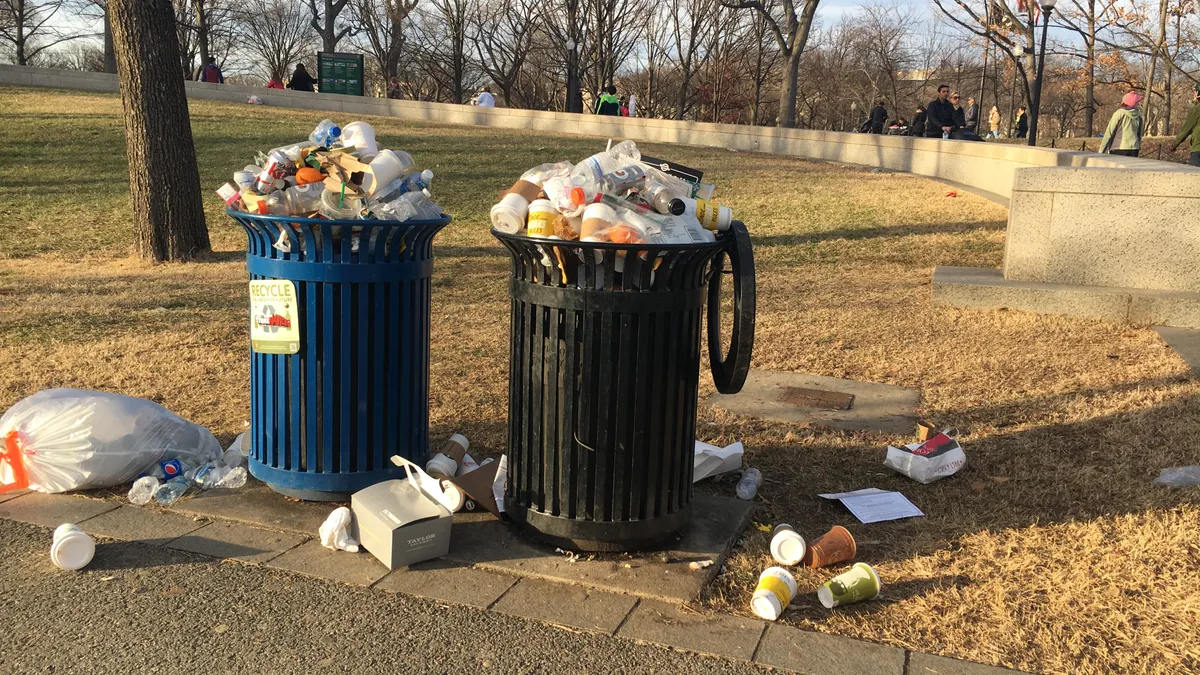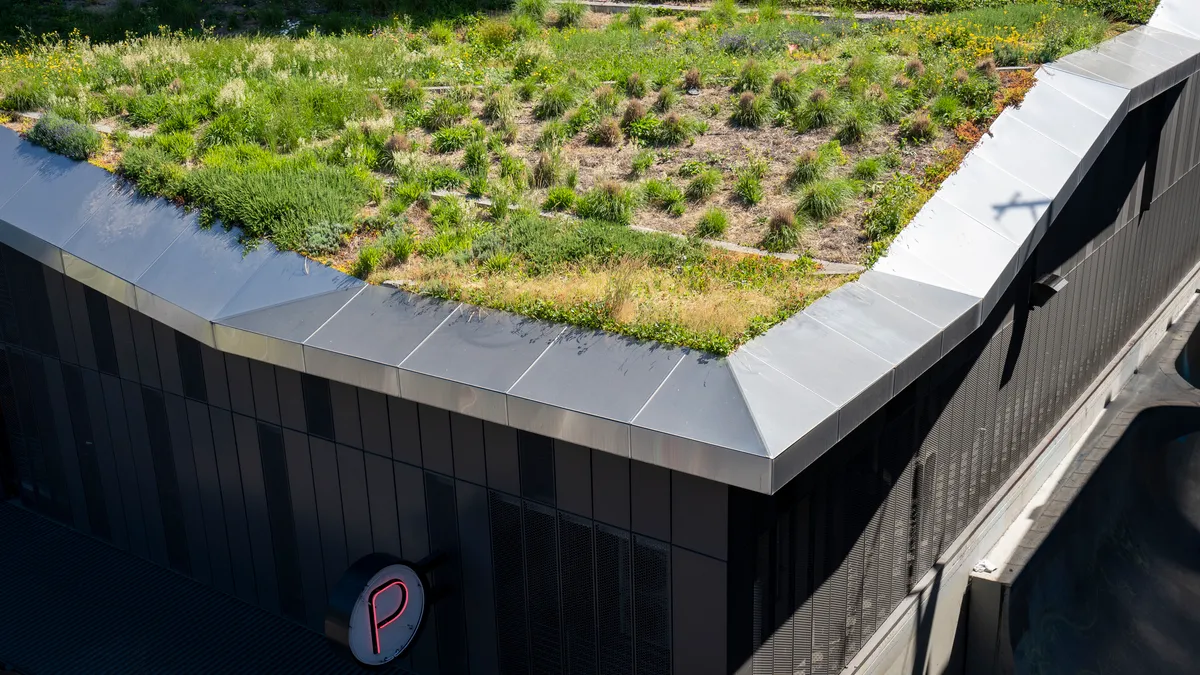Dive Brief:
- The Washington, D.C. Department of Public Works (DPW) will take over litter collection responsibilities for 126 National Park Service (NPS) properties throughout the district during the federal government shutdown, DPW Director Chris Shorter announced Friday.
- DPW will service 372 extra litter cans around D.C. in addition to the NPS properties. DPW will clear and treat NPS roadways in the event of inclement weather, the mayor's office announced.
- DPW employees will be paid normally while servicing the NPS properties. When the government shutdown ends, DPW will request a reimbursement from the federal government for the work completed, Jonathan Kuhl, a spokesman for DPW, told Waste Dive in an email.
“As the Mayor has stated. Whether the federal government shuts down or not, the District of Columbia is open for business.”- DPW Director Shorter pic.twitter.com/9sV4kHdEEJ
— DC DPW (@DCDPW) January 19, 2018
Dive Insight:
As the seat of the federal government, D.C. is almost always materially impacted by federal events, including government shutdowns and presidential inaugurations. However, other regions are not completely immune to the federal shutdown — parks from Baltimore to California were either devoid of staff at their open properties over the weekend, or were closed outright.
In D.C., available municipal employees may be required to work extra to keep trash bins from overflowing on the National Mall. However, at more remote NPS properties, where municipal staff may be unable to collect trash from visitors who enter parks while staff are furloughed, planning is more difficult. The NPS Contingency Plan repeatedly notes that trash collection is not treated as an essential service while the shutdown persists — so bins on public lands may simply go unserviced.
While the situation in D.C. may be unique compared to the rest of the country, it highlights how important it is that sanitation departments prepare for any scenario. To keep hundreds of acres of federal land clean, cities near rivers or coastlines have to plan for flooding and hurricanes to accommodate green waste and C&D debris, while cities west of the nation's capital must plan for wildfire to accommodate ash and household hazardous waste.











